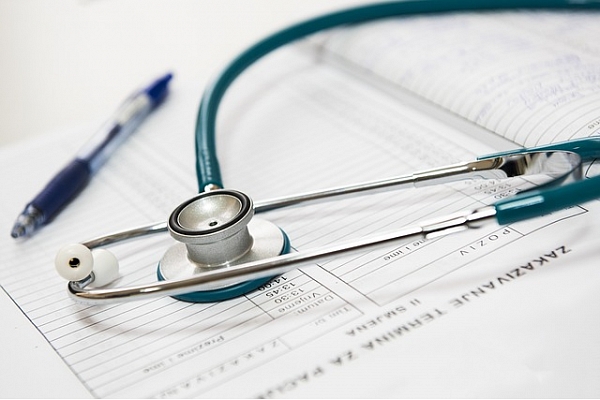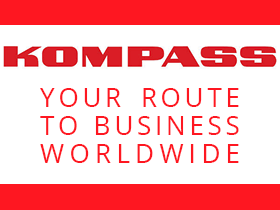Medical tourists spend EUR 5 million in Latvia
Healthcare and pharmaceutical industry in brief
• Medicines production and sales account for 55% of the industry (249 companies with aggregate turnover of EUR 1.202 billion), healthcare – 34% (388 companies, EUR 750.780 million), trade in medical equipment and supplies – 12% (142 companies, EUR 243.559 million);
• Latvian pharmaceutical companies export 90% of their output;
• There are 799 companies in the sector with their annual turnovers over EUR 145,000. Their aggregate annual turnover is EUR 2.197 billion, aggregate profit – EUR 94 million, the number of employees – 47,000;
• Market shares of drugstores in 2015 – JSC Sentor Farm Aptiekas (Mēness Aptiekas) - 26%, BENU Aptieka Latvija Ltd – 9.9%, Euroaptieka Farmācija Ltd – 9.6%, Euroaptieka Ltd – 9.1%, A Aptiekas Ltd - 8.6%, other drugstores 37%.
Medical services to foreigners rise 18%
Last year provision of medical services to foreigners rose by 18%, and their expenses on medical tourism in Latvia reached EUR 5 million. One of the most perspective areas was cancer treatment method virotherapy. Foreigners in Latvia most often choose a broad spectrum of diagnostic and dental services for an affordable price compared to other countries, and good quality. The most popular services are plastic surgery, aesthetic dermatology, infertility treatment, ophthalmology, traumatology and orthopedics, gastroenterology, phlebology and others. Many medical areas, for example, cardiology, rehabilitation, treatment of addictions still have huge growth potential. Latvia’s advantage compared to large countries is the price-performance ratio. For example, price of a vein surgery, and a full health check-up program might differ 3-5 times compared to Germany. Another advantage is a possibility to get a quick appointment for doctor’s visits and tests. Less than two weeks are necessary from the moment the patient has filed a request until the time of the consultation and tests. Foreign patients actively use the service of picking them up at the airport and transfer to the clinic. Specialization in a particular kind of service is another good way to compete with the large countries. For example, Sigulda Hospital offers partial gastrectomy which is in high demand in the Scandinavian countries. In general, a speedy development of private medicine has taken place in recent years – more than ten clinics have been opened, and investments in the sector amount to tens of millions of euros. Much attention has been paid not only to latest technologies, but also to the service, attitude to patients and infrastructure, promoting development of medical services offered to foreigners.
One tourist spends about EUR 850 for medical services in Latvia
Besides this indicator, there are also services that are more expensive, for example, a surgery with CyberKnife M6 in oncology costs EUR 7,500, but there are also services that cost much less. In total, prices for medical services in Latvia in 2016 remained at the same level as earlier. Prices of paid medical services to Latvian residents do not differ from those charged to medical tourists from abroad. Meanwhile, total revenues from medical tourism differs in different clinics. One example is Jūrmala Hospital that received more than 11 medical tourists last year, and each of them spent EUR 2,133 for medical services.
Fight for foreign patients stimulates competition
In previous years private healthcare institutions invested in new technologies and improvement of service in general, but last year and also this year investments in starting something new or expanding the present range of services with new ones demonstrate that private healthcare institutions focus on attraction of foreign patients. In turn, this stimulates competition and promotes introduction of latest technologies and examinations. Competition will keep increasing in the paid medicine market as several market players plan to expand their operations. The competition between the private and public sector will also grow, besides the medical services export market is affected by international events, therefore the flow of patients from Russia and other CIS countries to Latvia keeps shrinking. Thus, providers of medical services will have to focus on the local market and potential customers from European countries.
Consumption of drugs on rise in all Baltic states
Over the past three years consumption of drugs has risen in all three Baltic states, according to the Baltic Statistics on Medicines 2013-2015. Medicines for treating cardiovascular diseases demonstrated the biggest sales in the Baltic states. Latvia consumes slightly less of cardiovascular drugs than both its neighbors. Consumption of cardiovascular drugs in the Baltic states has been three times larger than consumption of the second most popular medicines group – medicines for treating digestive disorders and metabolism in Latvia and Estonia, and medicines for the nervous system in Lithuania. Comparing the consumption structure across the three Baltic states, some groups of drugs are consumed in similar amounts, while there are considerable differences in consumption of antidepressants, anxiolytics, sleeping pills and anti-stress medications, as well as statins. The most popular over-the-counter drug by its international or active substance in Latvia, Lithuania and Estonia was "acetylsalicylic acid".
11% rise for drug wholesalers
Sales of Latvian drug wholesalers totaled EUR 502.1 million last year, which is a growth by 11% from 2015, according to the data of the State Agency of Medicines. In the fourth quarter of last year, 26 Latvian drug wholesalers exported EUR 24.47 million worth of 672 various Latvian-registered medicines (including 290 government-funded medicines), with export sales remaining approximately on the same level as in the third quarter of 2016. In 2015, sales of Latvian drug wholesalers totaled EUR 452.67 million.
Sector’s leader boosts turnover
JSC Olainfarm pharmaceutical company closed 2016 with EUR 109.97 million in annual sales, which was a 12% increase against a year before. JSC Olainfarm achieved the fastest sales growth in Uzbekistan where sales jumped 65% year-on-year. The company's key sales markets in 2016 included Russia, Latvia, Ukraine and Belarus. Sales of JSC Olainfarm’s Latvijas Aptieka Ltd drug store chain in 2016 were EUR 18.7 million, which represents an increase by 11%. Sales of Silvanols Ltd during this period was EUR 5.34 million, which represents an increase by 21% compared to 2015. Products of Silvanols Ltd were sold in 14 European countries and with the help of JSC Olainfarm also to Albania, Kosovo, Azerbaijan, Kazakhstan, Belarus, Lithuania and Russia.
Sales of Mēness Aptiekas drugstore chain exceed 9%
Sales of Mēness Aptiekas pharmacy chain owner JSC Sentor Farm Aptiekas in the first nine months of 2016 rose by more than 9%. JSC Sentor Farm Aptiekas belongs to JSC Repharm holding who also owns Latvia’s largest medicines wholesaler JSC Recipe Plus and JSC Rīgas Farmaceitiskā Fabrika drugmaker, as well as JSC Poliklīnika that owns JSC Veselības Centru Apvienība healthcare centers.





